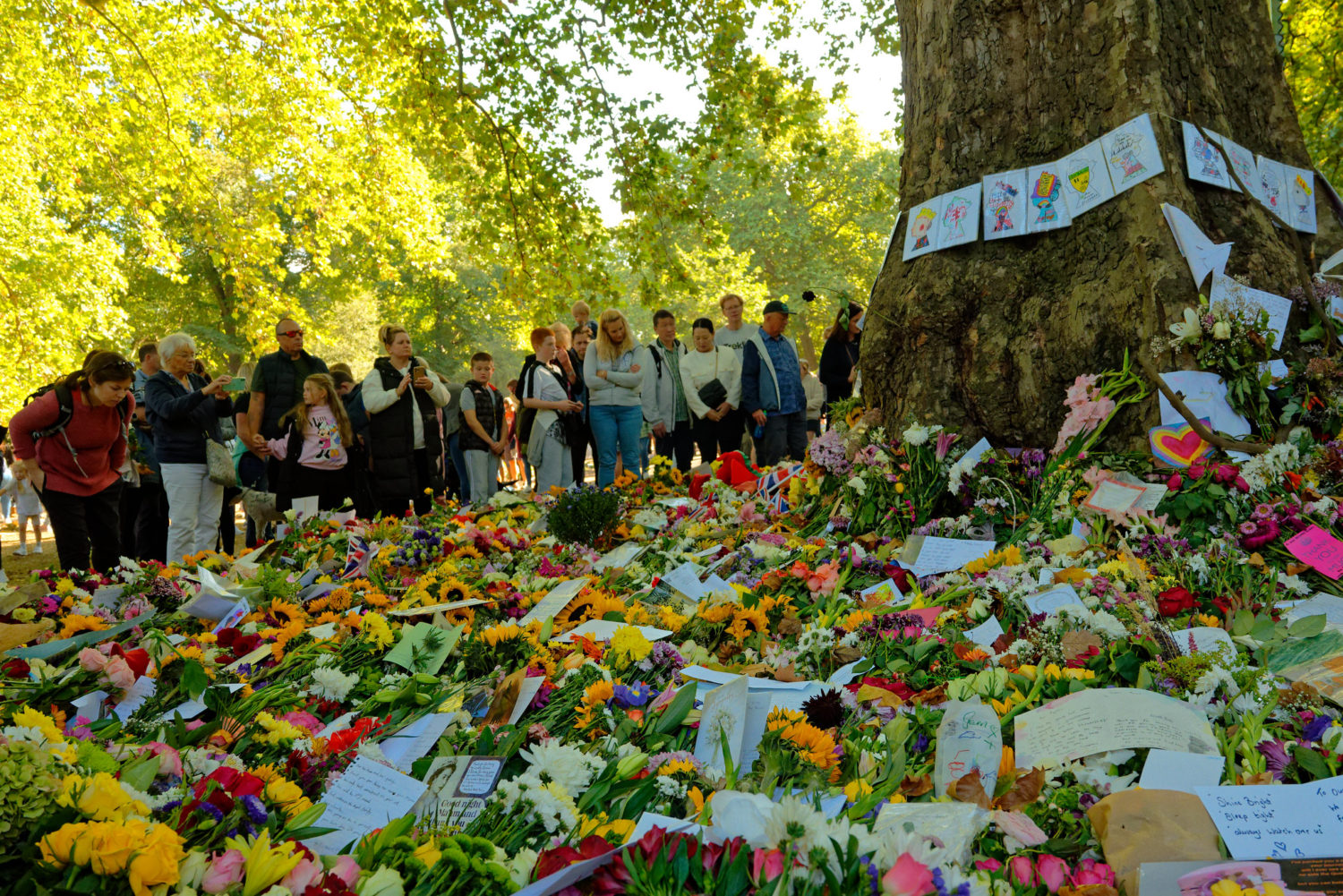Belonging together
The period of national mourning showed just how much many of us yearn for deeper connections with others, writes Kelly Grehan
In a country where we have had the numbers 52/48 etched in our collective consciousness since the Brexit vote, a sense of belonging has sometimes felt hard to come by. Indeed, for many of us, 12 years of Tory rule have made us wonder if we belong in the UK at all.
Loneliness, already on the rise before the pandemic has become a common feature of life now.
Lockdown left many people alone for long periods of time. Others felt just as lonely in houses overflowing with people. Many people came out of lockdown to find tasks that used to provide them human contact, like shopping, banking and paying for the bus were now done through machines. It is now really easy for anyone living alone to go days without speaking to another person.
Grieving, so often characterised by rituals, was disrupted so much in the pandemic, with many people unable to say a proper goodbye to people they lost. Many have carried a burden of unprocessed grief with them for the last two years,.
And whereas work once provided the opportunity to make friends and connections, there are now many people who have now never met their colleagues apart from through a screen.
So it is not surprising that, perhaps subconsciously, we have turned into a population seeking connection, belonging and shared experiences.
Belonging is one of Abraham Maslow’s hierarchy of needs and, the feeling of connectedness to a group or community – the sense that you’re part of something – is recognised as being a key part of a happy lifestyle
Psychologists report that sharing experiences has many benefits. These include allowing people to feel their own and other’s emotions, which helps develop the ability for emotional empathy and to understand each other better. In post-Brexit Britain isn’t empathy and understanding something that has begun to be erased from our culture?
So the public response to the death of the Queen, when considered in the context of a population in need of connections, was perhaps, inevitable.
As TV and radio stations all reported the same story, monarchists, republicans and those without much of a view either way, were experiencing the same news at the same time, in a way that no longer happens thanks to the rise of on-demand TV.
Of course, it helps that the Queen had been a constant presence in the background of our lives and that even the most ardent of republicans tend to have little criticism for the Queen herself. But as the days went on, the value of shared experiences became increasingly apparent.
The most obvious example of this, of course, was ‘The Queue’. Although the long waiting times standing in line sounded like something deeply unpleasant, what became clear was that actually people in the line, sharing a once in a lifetime experience with strangers, had an enjoyable and life-affirming time. People were swapping numbers, making plans to meet and talking about how much they had in common with those who just happened to be the next in line. In modern life, when would we get to spend 12 hours really getting to know a stranger? There are probably people we have lots in common with in all parts of our life, but we just do not get the chance to find out.
What was also striking about the queue was how many people reported being there for their mum/dad/nan/aunt who had died.
The Samaritans sent 180 volunteers to the queue who reported that people had been reflecting upon their own lives, as well as expressing grief for the late Queen. This is surely no bad thing.
It was not just those in the queue either: in towns across the country people gathered to hear the proclamation – effectively to hear news they already knew. Others took to wearing black, something they probably did not do at times of their own bereavement, while others took flowers to local monuments as well as to the royal parks. There was a feeling that we were all part of something. Despite the obvious sadness over the death of the monarch, there was an uplifting of the national mood, with people feeling connection and all the benefits this brings.
No one disputes that the world of more technology and less personal contact is here to stay, and that new developments bring benefits as well as difficulties. But as a country with a massive mental health crisis we need to look at what we can learn from events of the past fortnight and how we can bring more connection, empathy and understanding into our culture in the future.
Photo: martin_vmorris/flickr

